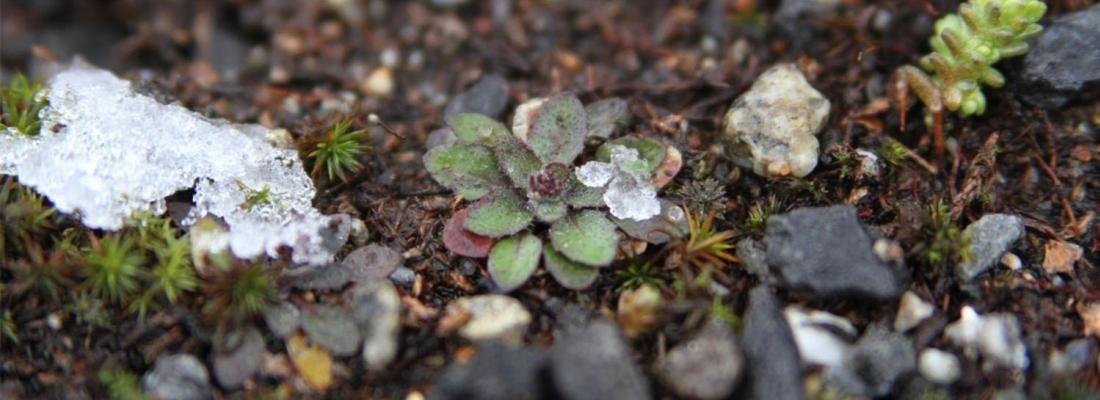Plants, like people and animals, have a microbiota. A team of researchers headed by the University of Chicago and including INRAE investigated whether genetic diversity within a plant species influences the makeup of its leaf microbiota.
 Arabidopsis thaliana, in North Sweden. Image Credit: Höga Kusten.
Arabidopsis thaliana, in North Sweden. Image Credit: Höga Kusten.
Over two years, the researchers planted over 30,000 plants in experimental setups at four different locations to study variance in the leaf microbiota and reproductive success, as measured by seed production, of 200 genotypes of a model plant.
Their findings, which were published in the journal PNAS on July 22nd, 2022, reveal that genetic variation across plants has a specific effect on certain bacteria, which in turn have a profound influence on the makeup of microbial communities. This effect on microbial communities helps diverse plant genotypes reproduce successfully.
Plants, like mammals, contain a microbiome made of numerous microbes that organize themselves into communities with competing, predatory, or symbiotic connections. The presence of particular microorganisms inside plant tissues, as well as their variety, may benefit the plant by improving its ability to fix nutrients or fight itself against diseases.
Can the plant, on the other hand, influence the makeup of its microbiota? To find out, the researchers investigated if and how the genetic variety inherently present in the model plant Arabidopsis thaliana affects the microbial communities in its leaves.
A study on 30,000 plants
The study team’s goals were to identify the target microorganisms of the plant’s genetic control, to identify the genes implicated in this control, and to assess the effect of this influence on seed production, an essential component of reproductive success in this annual plant species.
In order to do this, scientists planted genetically identical replicas of 200 Arabidopsis thaliana genotypes in eight experimental setups spread over four locations in northern and southern Sweden. The researchers gathered leaves from roughly 8,000 plants and used the metabarcoding DNA sequencing technology to characterize the microbial communities present.
This approach enables the DNA of a sample to be analyzed in its entirety and the diverse types of organisms present to be identified. More than 20,000 of the surviving plants were employed in a comparative study of seed output amongst genotypes. Their findings reveal that genetic variations between plants of the same species have an impact on the makeup of the leaf microbiota, independent of the environment in which the plants have lived.
An influence of the plant genotype on specific microorganisms
Microbial communities are organized around microorganisms that structure them and have a significant impact on their composition. The study’s findings indicate that the plant genotype has the biggest impact on these structuring bacteria. These microbes, in particular, have an impact on the development and reproductive performance of certain plant genotypes.
The research found that the genetic effect of plants on these structuring bacteria accounts for around 10% of the variation in seed production across Arabidopsis thaliana genotypes at the four locations and during the two years investigated. The researchers found genes and activities involved in the variance of microbial communities amongst Arabidopsis genotypes by sequencing the genomes of 200 Arabidopsis genotypes.
Their findings point to the involvement of genes involved in the plant immune system, as well as the creation of specialized metabolites, which are often implicated in the plant’s response mechanisms to various stresses.
These findings open up new opportunities for future research into plant genetic diversity; it would be possible to conserve or improve genotypes based on their ability to favor the presence of certain beneficial microorganisms that contribute to population adaptive potential or to control various ecosystem services (biomass production, better resilience to constraints).
Source:
Journal reference:
Brachi, B., et al. (2022) Plant genetic effects on microbial hubs impact host fitness in repeated field trials. PNAS. doi.org/10.1073/pnas.2201285119.